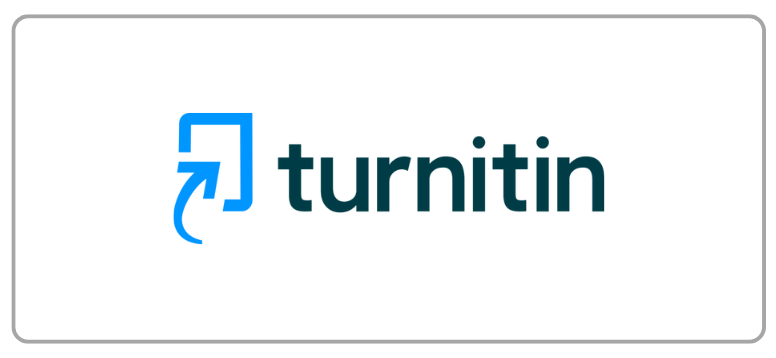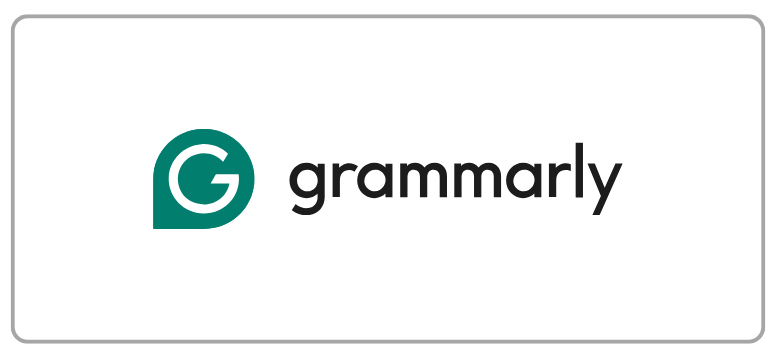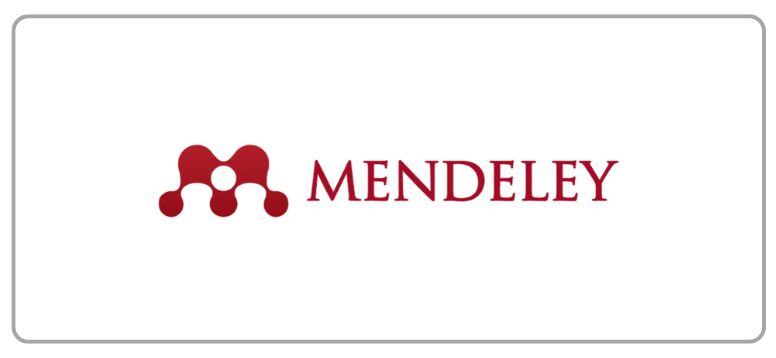The Effect of Openness to Experience on Trust Behavior: The Moderating Role of Situational Strength
DOI:
https://doi.org/10.21512/humaniora.v14i1.7937Keywords:
trusting behavior, personality trait, situational strengthAbstract
The research aimed to integrate how trusting behavior was formed by an interaction between individual personality traits and situational context. Trust game protocol and a series of personality trait questionnaires were utilized to generate the data. A moderated regression with categorical variables was established to test the hypothesis of whether a player’s role or situational strength moderated the relationship between players’ trait and their corresponding trusting behavior. Regression results showed that situational strength moderated the U-shaped relationship between openness to experience and trusting behavior, such that the U-shaped relationship was more pronounced in weak situations. The research tested the hypotheses in the trust game setting to isolate the moderating role of weak and strong situations. In future research, it is necessary to present both weak and strong situations in a real organizational setting. The research offers insight into how individuals, from lower to higher openness to experience developed the trusting behavior to explore information to enhance their knowledge of an economic decision-making situation. The U-shaped relationship implies the course of the knowledge enhancement; first, by exploring the internal belief (thus it makes lower trust) to understand the situation, and second, by putting more trust in others to reduce the need for instantaneous compensation because of an enhanced expectation that commitment would be honored in the future.
References
Ainsworth, S. E., Baumeister, R. F., Ariely, D., & Vohs, K. D. (2014). Ego depletion decreases trust in economic decision making. Journal of Experimental Social Psychology, 54, 40-49. https://doi.org/10.1016/j.jesp.2014.04.004.
Al-Sharif, R. (2021). Critical realism and attribution theory in qualitative research. Qualitative Research in Organizations and Management, 16(1), 127-144. https://doi.org/10.1108/QROM-04-2020-1919.
Allik, J. R., & McCrae, R. R. (2004). Toward a geography of personality traits: Patterns of profiles across 36 cultures. Journal of Cross-Cultural Psychology, 35(1), 13-28. https://doi.org/10.1177/0022022103260382.
Athota, V. S., Budhwar, P., & Malik, A. (2020). Influence of personality traits and moral values on employee well-being, resilience and performance: A cross-national study. Applied Psychology, 69(3), 653-685. https://doi.org/10.1111/apps.12198.
BaÃa, E., & Franco, M. (2021). Interfirm cooperation and engagement barriers in a family business context. International Journal of Organizational Analysis, 31(2), 368-386. https://doi.org/10.1108/IJOA-03-2021-2686.
Bani-Melhem, S., Shamsudin, F. M., Abukhait, R. M., & Quratulain, S. (2021). Paranoid personality and frontline employee’s proactive work behaviours: A moderated mediation model of empathetic leadership and perceived psychological safety. Journal of Service Theory and Practice, 31(1), 113-135. https://doi.org/10.1108/JSTP-05-2020-0104.
Bartram, D. (2013). Scalar equivalence of OPQ32: Big five profiles of 31 countries. Journal of Cross-Cultural Psychology, 44(1), 61-83. http://dx.doi.org/10.1177/0022022111430258.
Bendella, H., & Wolff, H. G. (2020). Who networks? A meta-analysis of networking and personality. Career Development International, 25(5), 461-479. https://doi.org/10.1108/CDI-12-2019-0289.
Berg, J. E., Dickhaut, J. W., & McCabe, K. A. (1995). Trust, reciprocity, and social history. Games and Economic Behavior, 10(1), 122-142. https://doi.org/10.1006/game.1995.1027.
Bezbaruah, S., Dhir, A., Talwar, S., Tan, T. M. &Kaur, P. (2021). Believing and acting on fake news related to natural food: The influential role of brand trust and system trust. British Food Journal, 124(9), 2937-2962. https://doi.org/10.1108/BFJ-02-2021-0190.
Bisht, N. S., & Mahajan, A. (2021). Shared stressors and core self-evaluations: A trait activation perspective on employee performance. Journal of Business Research, 131, 103-111. https://doi.org/10.1016/j.jbusres.2021.03.053.
Bos-Nehles, A., van der Heijden, B., van Riemsdijk, M., & Looise, J. K. (2020). Line management attributions for effective HRM implementation: Towards a valid measurement instrument. Employee Relations, 42(3), 735-760. https://doi.org/10.1108/ER-10-2018-0263.
Bowen, D. E., & Ostroff, C. (2004). Understanding HRM - Firm performance linkage: The role of the “strength†of the HRM system. The Academy of Management Review, 29(2), 203-221. http://dx.doi.org/10.5465/AMR.2004.12736076.
Carson, J., Waddingham, J., & Mackey, J. (2020). Organization member action proximity and attributions for managerial crisis response failure. Management Decision, 58(10), 2177-2193. https://doi.org/10.1108/MD-08-2020-1059.
Chetty, C., Hofmeyr, A., Kincaid, H., & Monroe, B. (2021). The trust game does not (only) measure trust: The risk-trust confound revisited. Journal of Behavioral and Experimental Economics, 90, 101520. https://doi.org/10.1016/j.socec.2020.101520.
Chieffi, V., Pichierri, M., Peluso, A. M., Collu, C., & Guido, G. (2022). Effects of big five personality traits and market mavenship on consumers' intention to spread word-of-mouth in the art context. Arts and the Market, 12(1), 17-31. https://doi.org/10.1108/AAM-09-2021-0052.
Chiong, R., Dhakal, S., Chaston, T., & Chica, M. (2022). Evolution of trust in the sharing economy with fixed provider and consumer roles under different host network structures. Knowledge-Based Systems, 236, 107496. https://doi.org/10.1016/j.knosys.2021.107496.
Chou, S. Y., Barron, K., & Ramser, C. (2021). Helping coworkers only when I have more? Integrating social comparison, attribution and conservation of resources theories. Management Research Review, 44(7), 1012-1028.
Coan, R. W. (1972). Measurable components of openness to experience. Journal of Consulting and Clinical Psychology, 39(2), 346. https://doi.org/10.1037/h0033385.
DeYoung, C. G., Quilty, L. C., Peterson, J. B., & Gray, J. R. (2014). Openness to experience, intellect, and cognitive ability. Journal of Personality Assessment, 96(1), 46-52. https://doi.org/10.1080/00223891.2013.806327.
Eroglu, C., & Sanders, N. R. (2021). Effects of personality on the efficacy of judgmental adjustments of statistical forecasts. Management Decision, 60(3), 589-605. https://doi.org/10.1108/MD-09-2020-1269.
Esmaeelinezhad, O., & Afrazeh, A. (2018). Linking personality traits and individuals’ knowledge management behavior. Aslib Journal of Information Management, 70(3), 234-251. https://doi.org/10.1108/AJIM-01-2018-0019.
Evans, A. M., & Revelle, W. (2008). Survey and behavioral measurements of interpersonal trust. Journal of Research in Personality, 42(6), 1585-1593. https://doi.org/10.1016/j.jrp.2008.07.011.
Fahr, R., & Irlenbusch, B. (2008). Identifying personality traits to enhance trust between organizations: An experimental approach. Managerial and Decision Economics, 29, 469-487.
Gampa, A., Linley, J. V., Roe, B., & Warren, K. L. (2018). Generosity, fairness, trust and time: The performance of therapeutic community residents in economics experiments. Therapeutic Communities: The International Journal of Therapeutic Communities, 39(2), 98-107. https://doi.org/10.1108/TC-06-2017-0017.
Heinström, J., Nikou, S., & Sormunen, E. (2021). Hide and seek – the role of personality, sense of coherence and experiential information in hidden information needs. Journal of Documentation, 78(4), 780-799. https://doi.org/10.1108/JD-06-2021-0124.
Hendarsjah, H., Susanto, E., Sugianto, B.R. L., & Handoko, T. H. (2019). Curvilinear relationship between intra-team trust and team innovation: The moderating role of task complexity. Journal of Asia Business Studies, 13(3), 472-487. https://doi.org/10.1108/JABS-12-2016-0180.
Hung-Baesecke, C. F., & Chen, Y. R. (2020). Explicating trust and its relation to dialogue at a time of divided societies. Public Relations Review, 46(1), 101890. https://doi.org/10.1016/j.pubrev.2020.101890.
Jeong, S. S., Korsgaard, M. A., & Morrell, D. (2020). The dark side of bright traits: How context cues misdirect facets of conscientiousness. Personnel Review, 50(3), 900-917. https://doi.org/10.1108/PR-10-2019-0542.
Jiao, H., Yang, J., Jiang, C., & Yu, J. (2021). Openness and technological innovation: The moderating effect of information technology adoption and political ties. International Journal of Emerging Markets, 1-27.
John, O. P., Donahue, E. M., & Kentle, R. L. (1991). The big five inventory - Versions 4a and 54. Berkeley, California: University of California, Berkeley, Institute of Personality and Social Research.
Judge, T. A., & Zapata, C. P. (2015). The person-situation debate revisited: Effect of situation strength and trait activation on the validity of the big five personality trait in predicting job performance. The Academy of Management Journal, 58(4), 1149-1179. https://doi.org/10.5465/amj.2010.0837.
Kajonius, P. (2017). Cross-cultural personality differences between East Asia and Northern Europe in IPIP-NEO. International Journal of Personality Psychology, 3(1), 1-7.
Kim, S. L., Kim, M., & Yun, S. (2017). What do we need for creativity? The interaction of perfectionism and overall justice on creativity. Personnel Review, 46(1), 154-167. https://doi.org/10.1108/PR-06-2015-0187.
Koole, B. (2020). Trusting to learn and learning to trust. A framework for analyzing the interactions of trust and learning in arrangements dedicated to instigating social change. Technological Forecasting and Social Change, 161, 120260. https://doi.org/10.1016/j.techfore.2020.120260.
Lai-Bennejean, C., & Beitelspacher, L. (2021). Impacts of salespeople’s biased and unbiased performance attributions on job satisfaction: The concept of misattributed satisfaction. European Journal of Marketing, 55(2), 468-496. https://doi.org/10.1108/EJM-11-2018-0816.
Lakshman, C., Lakshman, S., & Gok, K. (2021). Biculturalism and cross-cultural competence: Examination of an attribution complexity theory-based model. Cross Cultural & Strategic Management, 28(3), 481-500. https://doi.org/10.1108/CCSM-03-2020-0081.
Lewicki, R. J., Tomlinson, S. E., & Gillespie, N. (2006). Models of interpersonal development: Theoretical approaches, empirical evidence, and future directions. Journal of Management, 32(6), 991-1022. https://doi.org/10.1177/0149206306294405.
Li, H., Li, C., & Wang, Z. (2021). An agent-based model for exploring the impacts of reciprocal trust on knowledge transfer within an organization. Journal of Business & Industrial Marketing, 36(8), 1486-1503. https://doi.org/10.1108/JBIM-12-2019-0528.
Liang, Y., Lee, S. H., & Workman, J. E. (2021). How do consumers perceive mobile self-checkout in fashion retail stores? International Journal of Retail & Distribution Management, 50(6), 977-691. https://doi.org/10.1108/IJRDM-08-2020-0299.
Marchalina, L., Ahmad, H., & Gelaidan, H. M. (2021). Employees' commitment to change: Personality traits and organizational culture. Journal of Economic and Administrative Sciences, 37(4), 377-392. https://doi.org/10.1108/JEAS-11-2018-0131.
McCannon, B. C., & Stevens, J. (2017). Role of personality style on bargaining outcomes. International Journal of Social Economics, 44(9), 1166-1196.
McCrae, R. R., & Costa, P. T. Jr. (1997). Personality trait structures as a human universal. American Psychologist, 52, 509-515.
Meskelis, S., & Whittington, J. L. (2020). Driving employee engagement: How personality trait and leadership style impact the process. Journal of Business & Industrial Marketing, 35(10), 1457-1473. http://dx.doi.org/10.1108/JBIM-11-2019-0477.
Moehl, S., & Friedman, B. A. (2021). Consumer perceived authenticity of organizational corporate social responsibility (CSR) statements: A test of attribution theory. Social Responsibility Journal, 18(4), 875-893. https://doi.org/10.1108/SRJ-07-2020-0296.
Muldoon, J., Bauman, A., & Lucy, C. (2018). Entrepreneurial ecosystem: Do you trust or distrust? Journal of Enterprising Communities: People and Places in the Global Economy, 12(2), 158-177. https://doi.org/10.1108/JEC-07-2017-0050.
Muller, J., & Schwieren, C. (2019). Big five personality factors in the trust game. Journal of Business Economics, 90(5), 37-55. https://doi.org/10.1007/s11573-019-00928-3.
Obrenovic, B., Du, J., Godinić, D., & Tsoy, D. (2021). Personality trait of conscientiousness impact on tacit knowledge sharing: The mediating effect of eagerness and subjective norm. Journal of Knowledge Management, 26(5), 1124-1163. https://doi.org/10.1108/JKM-01-2021-0066.
Ömüriş, E., Erdem, F., & Aytemur, J. O. (2020). The relationship between cooperative and competitive behavioral tendencies and trust in coworkers. Evidence-based HRM, 8(3), 345-360. https://doi.org/10.1108/EBHRM-03-2020-0034.
Pour, M. J., & Taheri, F. (2019). Personality traits and knowledge sharing behavior in social media: Mediating role of trust and subjective well-being. On The Horizon, 27(2), 98-117. https://doi.org/10.1108/OTH-03-2019-0012.
Quach, S., Weaven, S. K., Thaichon, P., Baker, B., & Edwards, C. J. (2020). Gratitude in franchisor-franchisee relationships: Does personality matter? European Journal of Marketing, 54(1), 109-144. https://doi.org/10.1108/EJM-07-2018-0458.
Rahman, M. S., Mannan, M., Hossain, M. A., Zaman, M. H., & Hassan, H. (2018). Tacit knowledge-sharing behavior among the academic staff: Trust, self-efficacy, motivation and Big Five personality traits embedded model. International Journal of Educational Management, 32(5), 761-782. https://doi.org/10.1108/IJEM-08-2017-0193.
Rajaobelina, L., Brun, I., Line, R., & Cloutier-Bilodeau, C. (2021). Not all elderly are the same: Fostering trust through mobile banking service experience. International Journal of Bank Marketing, 39(1), 85-106. https://doi.org/10.1108/IJBM-05-2020-0288.
Reiersen, J. (2019). Drivers of trust and trustworthiness. International Journal of Social Economics, 46(1), 2-17. https://doi.org/10.1108/IJSE-01-2018-0025.
Rosenberger, L. A., Naef, M., Eisenegger, C., & Lamm, C. (2020). Interpersonal distance adjustments after interactions with a generous and selfish trustee during a repeated trust game. Journal of Experimental Social Psychology, 90, 104001. https://doi.org/10.1016/j.jesp.2020.104001.
Sampat, B. & Raj, S. (2022). Fake or real news? Understanding the gratifications and personality traits of individuals sharing fake news on social media platforms. Aslib Journal of Information Management, 74(5), 840-876. https://doi.org/10.1108/AJIM-08-2021-0232.
Schuster, T., Ambrosius, J., & Bader, B. (2017). Mentoring in international assignments: A personality traits perspective. Employee Relations, 39(7), 1100-1130. https://doi.org/10.1108/ER-09-2016-0180.
Sofianos, A. (2022). Self-reported & revealed trust: Experimental evidence. Journal of Economic Psychology, 88, 102451. https://doi.org/10.1016/j.joep.2021.102451v.
Soltani-Nejad, N., Mirezati, S. Z., & Saberi, M. K. (2020). Predicting intention to share information on commercial websites based on personality traits. The Bottom Line, 33(3), 251-261. V.
Steinbruch, F. K., Nascimento, L. S., & de Menezes, D. C. (2022). The role of trust in innovation ecosystems. Journal of Business & Industrial Marketing, 37(1), 195-208. https://doi.org/10.1108/JBIM-08-2020-0395.
Stone, T. H., & Jawahar, I. M. (2021). A leadership model for high-intensity organizational contexts. Management Research Review, 44(8), 1199-1216. https://doi.org/10.1108/MRR-06-2020-0324.
Tang, K. H. D. (2021). Personality traits, teamwork competencies and academic performance among first-year engineering students. Higher Education, Skills and Work-Based Learning, 11(2), 367-385. https://doi.org/10.1108/HESWBL-11-2019-0153.
Tett, R. P., & Burnett, D. D. (2003). A personality trait-based interactionist model of job performance. Journal of Applied Psychology, 88(3), 500-517. https://doi.org/10.1037/0021-9010.88.3.500.
Träskman, T. I., & Skoog, M. (2021). Performing openness: How the interplay between knowledge sharing and digital infrastructure creates multiple accountabilities. Journal of Strategy and Management, 15(2), 194-219. https://doi.org/10.1108/JSMA-12-2020-0359.
Trif, S., Curseu, P. L., Fodor, O. C., & Flestea, A. M. (2020). An attributional account of power in multi-party negotiations. International Journal of Conflict Management, 31(5), 821-842. https://doi.org/10.1108/IJCMA-10-2019-0189.
van den Akker, O. R., van Assen, M. A. L. M., van Vugt, M., & Wicherts, J. M. (2020). Sex differences in trust and trustworthiness: A meta-analysis of the trust game and the gift-exchange game. Journal of Economic Psychology, 81, 102329. https://doi.org/10.1016/j.joep.2020.102329.
Vanhala, M. (2020). Trust as an organizational knowledge sharing enabler – Validation of the impersonal trust scale. VINE Journal of Information and Knowledge Management Systems, 50(2), 349-368. https://doi.org/10.1108/VJIKMS-12-2018-0119.
Vokić,, N. P., Bilušić, M. R., & Perić, I. (2021). Work-study-life balance – The concept, its dyads, socio-demographic predictors and emotional consequences. Zagreb International Review of Economics & Business, 24, 77-94. https://doi.org/10.2478/zireb-2021-0021.
Wihler, A., Meurs, J. A., Wiesmann, D., Troll, L., & Blickle, G. (2017). Extraversion and adaptive performance: Integrating trait activation and socioanalytic personality theories at work. Personality and Individual Differences, 116, 133-138. https://doi.org/10.1016/j.paid.2017.04.034.
Wilhau, A. J. (2021). Dark traits, social loafing and team member exchange: Who slacks and when? Management Research Review, 44(12), 1583-1598. https://doi.org/10.1108/MRR-10-2020-0624.
Woods, S. A., Mustafa, M. J., Anderson, N., & Sayer, B. (2018). Innovative work behavior and personality traits: Examining the moderating effects of organizational tenure. Journal of Managerial Psychology, 33(1), 29-42. https://doi.org/10.1108/JMP-01-2017-0016.
Zhang, Y., Chen, H., Liu, E., He, Y., & Cheng, E. (2022). Impacts of cooperative and competitive personalities on tacit knowledge sharing among Chinese employees. Journal of Knowledge Management, 26(1), 45-69. https://doi.org/10.1108/JKM-09-2020-0713.
Zhang, Y., Guan, L., & Jin, S. (2021). Trust and consumer confidence in the safety of dairy products in China. British Food Journal, 124(11), 3644-3665. https://doi.org/10.1108/BFJ-05-2021-0508.
Zia, M. Q., Naveed, M., Bashir, M. A., & Shamsi, A. F. (2020). The interaction of situational factors on individual factors and self-development. European Journal of Training and Development, 44(4/5), 509-530. https://doi.org/10.1108/EJTD-10-2019-0172.
Downloads
Published
How to Cite
Issue
Section
License
Copyright (c) 2023 Hidajat Hendarsjah

This work is licensed under a Creative Commons Attribution-ShareAlike 4.0 International License.
Authors who publish with this journal agree to the following terms:
a. Authors retain copyright and grant the journal right of first publication with the work simultaneously licensed under a Creative Commons Attribution License - Share Alike that allows others to share the work with an acknowledgment of the work's authorship and initial publication in this journal.
b. Authors are able to enter into separate, additional contractual arrangements for the non-exclusive distribution of the journal's published version of the work (e.g., post it to an institutional repository or publish it in a book), with an acknowledgment of its initial publication in this journal.
c. Authors are permitted and encouraged to post their work online (e.g., in institutional repositories or on their website) prior to and during the submission process, as it can lead to productive exchanges, as well as earlier and greater citation of published work.
USER RIGHTS
All articles published Open Access will be immediately and permanently free for everyone to read and download. We are continuously working with our author communities to select the best choice of license options, currently being defined for this journal as follows: Creative Commons Attribution-Share Alike (CC BY-SA)


















